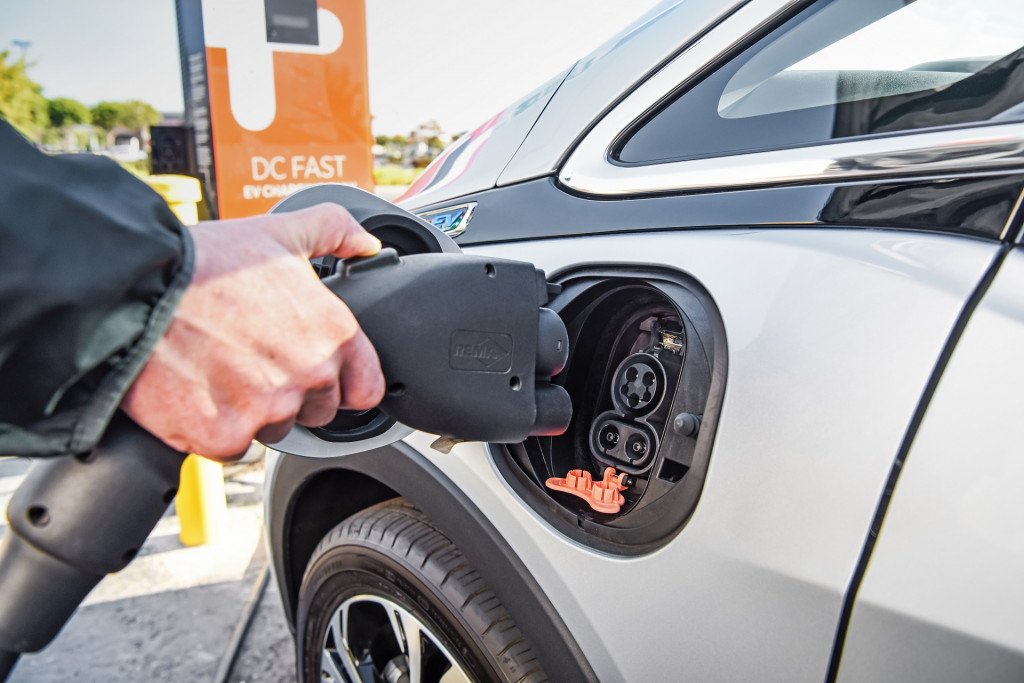The average vehicle on U.S. roads these days is more than 10 years old, despite three successive years of record new-vehicle sales.
That's a result not only of the 2008-2010 recession but also vastly more durable and reliable vehicles compared to those of previous decades.
All of those vehicles provide a ready stream of service revenue to dealerships, especially while they're still in warranty.
DON'T MISS: How do you service a hydrogen fuel-cell car at a dealer?
Data from dealer trade groups shows that servicing is one of the two most-profitable lines of business for franchised dealerships, along with sales of used cars.
New-car sales are actually less profitable, but they do create a steady flow of customers who will come in for service in the future.
Electric cars, however, are poised to throw a monkey wrench into the gears of that finely tuned business model.

2018 Chevrolet Bolt EV
As a recent article in the "Fixed Ops" section of industry trade journal Automotive News (subscription may be required) notes, the reduced service requirements of battery-electric cars will generate far less revenue for dealerships.
Experts say everything in the back of the store—vehicle repair, parts, body shops, service customer retention—will be disrupted if the coming armada of electric vehicles, which require less maintenance than traditional cars and trucks, sells in high volume.
While plug-in electric cars, both battery-electric and plug-in hybrid, now account for only about 1 percent of new-vehicle sales, that percentage will clearly increase in the future.
READ THIS: Mechanic's Worry: Electric Car Brakes Will Ruin My Business (Aug 2012)
Wally Burchfield, Nissan North America's vice president of U.S. aftersales, estimated a battery-electric vehicle would generate only two-thirds to three-quarters the service revenue from regular maintenance items that a gasoline car would.
We suggest that may be a bit optimistic.
Tires and wiper blades are the sole wear items on a Nissan Leaf electric car, though replacing the filter in the cabin air-intake system is also recommended.
![2006 Toyota Prius and 2015 Nissan Leaf [photo: John C. Briggs] 2006 Toyota Prius and 2015 Nissan Leaf [photo: John C. Briggs]](https://images.hgmsites.net/lrg/2006-toyota-prius-and-2015-nissan-leaf-photo-john-c-briggs_100556682_l.jpg)
2006 Toyota Prius and 2015 Nissan Leaf [photo: John C. Briggs]
Sure, toward the end of their lives, electric cars may also need suspension work, alignment, and brakes—but as with hybrid-electric vehicles, their friction brakes last far longer than other cars due to the use of regenerative braking to slow the car while recharging the battery.
Reports of Nissan Leafs and Toyota Priuses still on their original brake pads at 75,000 miles are not uncommon.
A UBS teardown of a Chevy Bolt EV and a gasoline-engined Volkswagen Golf concluded that replacement parts for the Bolt EV (with 24 moving parts) would be 60 percent lower than for the VW Golf (with 124 moving parts).
CHECK OUT: Toyota Camry Hybrid Battery Needed $10 Repair, Not $4,000 Dealer Replacement
Some dealers may wish to take a leaf from the independent repair shops that have sprung up to fix the battery packs in hybrid cars, which dealers now almost universally say must be replaced completely if they malfunction.
Opening up high-voltage battery packs requires training and significant safety precautions, but often a malfunctioning battery needs only a module or some contacts cleaned to work properly—not the $4,000 replacement dealerships will usually say is an owner's only recourse.
Still, we'll believe your average franchised dealership is actually facing up to the realities of electric cars, however, only when we stop hearing about Nissan dealers that have sent years of periodic oil-change reminders to owners of Leaf electric cars.
And not until then.













